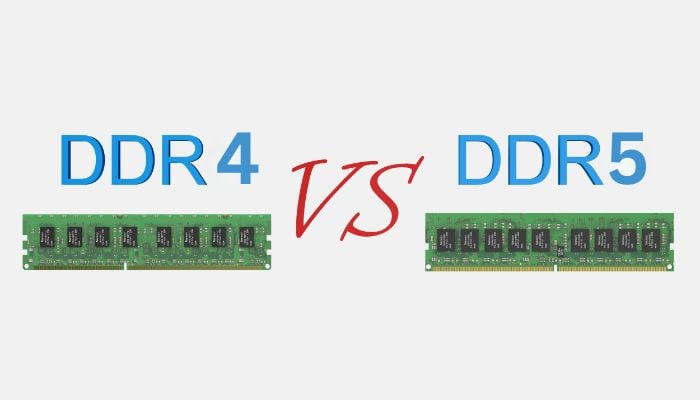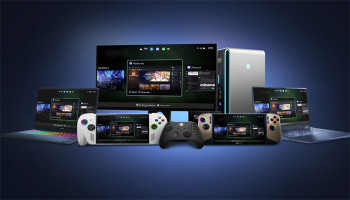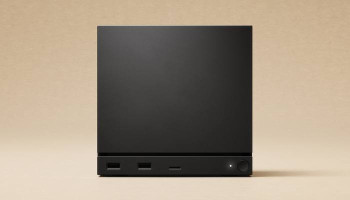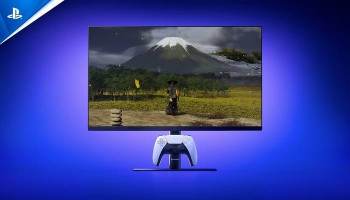
DDR5 is the latest generation of memory technology, promising faster speeds, lower power consumption, and higher capacities than DDR4. But how much of an impact does it have on gaming performance? Is it worth upgrading to DDR5 if you already have a DDR4 system? Here, we will compare DDR5 and DDR4 in various gaming scenarios, using data from TechSpot, a leading source of technology news and reviews.
Difference between DDR5 and DDR4
DDR5 stands for Double Data Rate 5, and it is the successor to DDR4, which has been the standard memory type for desktops and laptops since 2014. DDR5 offers several improvements over DDR4, such as:
Higher frequencies: DDR5 can run at speeds up to 8400 MHz, while DDR4 typically tops out at 3200 MHz. Higher frequencies mean faster data transfer and lower latency, which can improve performance in some applications.
Read more: Comparing the top-rated gaming earbuds
Lower voltages: DDR5 operates at 1.1 V, compared to 1.2 V for DDR4. Lower voltages mean less power consumption and less heat generation, which can extend the lifespan of the memory modules and the system.
Higher densities: DDR5 can support up to 64 GB per module, while DDR4 is limited to 32 GB. Higher densities mean more memory capacity, which can benefit multitasking and memory-intensive applications.
On-die ECC: DDR5 has an error correction code (ECC) built into each chip, while DDR4 relies on external ECC chips. ECC can detect and correct data errors, which can improve the reliability and stability of the system.
How does DDR5 affect gaming performance?
To test the impact of DDR5 on gaming performance, TechSpot used two identical systems, one with DDR5-4800 memory and one with DDR4-3200 memory, both running an Intel Core i9-12900K processor and an Nvidia GeForce RTX 3090 graphics card. They tested 12 popular games at 1080p, 1440p, and 4K resolutions, using high or ultra settings. Here are some of the main findings:
At 1080p, DDR5 was 7% faster on average than DDR4, with the biggest gains seen in Assassin’s Creed Valhalla (16%), Far Cry 6 (15%), and Watch Dogs Legion (14%). However, some games showed no difference or even slightly lower performance with DDR5, such as Cyberpunk 2077, Red Dead Redemption 2, and Shadow of the Tomb Raider.
Read more: Three GPUs that outshine the RTX 4060 Ti
At 1440p, DDR5 was 4% faster on average than DDR4, with the biggest gains seen in Assassin’s Creed Valhalla (11%), Far Cry 6 (10%), and Watch Dogs Legion (9%).
However, some games showed no difference or even slightly lower performance with DDR5, such as Cyberpunk 2077, Red Dead Redemption 2, and Shadow of the Tomb Raider.
At 4K, DDR5 was 2% faster on average than DDR4, with the biggest gains seen in Assassin’s Creed Valhalla (7%), Far Cry 6 (6%), and Watch Dogs Legion (5%). However, some games showed no difference or even slightly lower performance with DDR5, such as Cyberpunk 2077, Red Dead Redemption 2, and Shadow of the Tomb Raider.
Is DDR5 good for gamers?
Based on the results from TechSpot, DDR5 does offer some benefits for gaming performance, especially at lower resolutions and in newer games that are more CPU-bound.
However, the gains are not very significant, and in some cases, DDR5 can even perform worse than DDR4, depending on the game and the settings. Moreover, DDR5 is currently much more expensive and less available than DDR4, making it a hard sell for most gamers.
Therefore, unless you are building a new system with the latest Intel Alder Lake platform, which supports both DDR5 and DDR4, or you are planning to upgrade to a future platform that will require DDR5, there is no need to rush to get DDR5 memory for gaming.
DDR4 is still a viable and affordable option that can deliver excellent gaming performance for most scenarios. However, if you are looking for the best possible performance and future-proofing, and you don’t mind paying a premium, DDR5 might be worth considering.
















